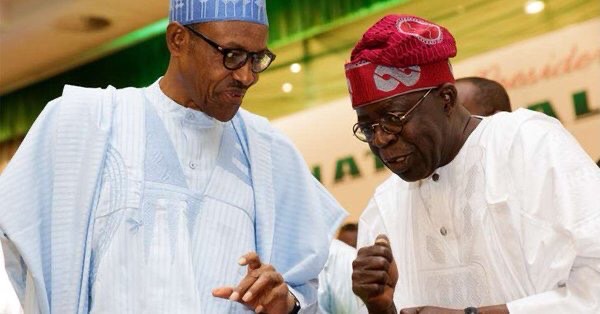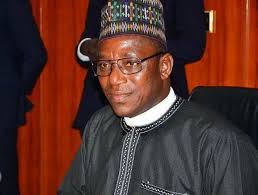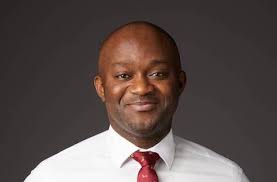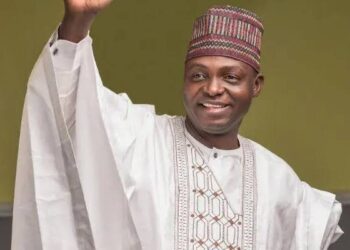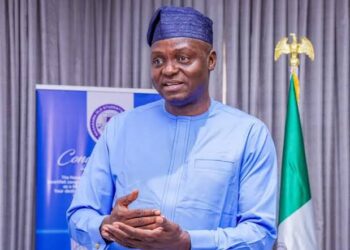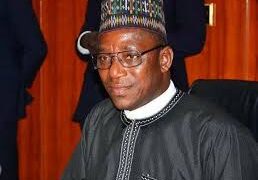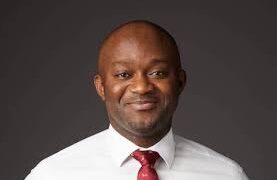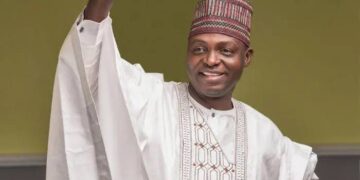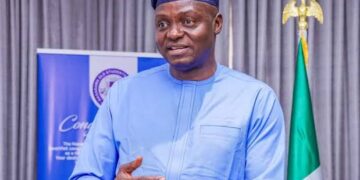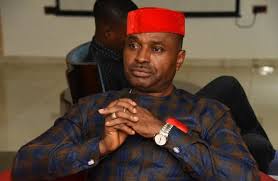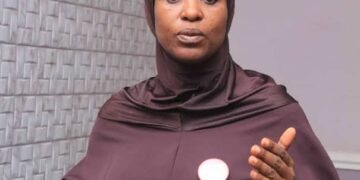Former presidential candidate of the Labour Party, Peter Obi, persisted in his criticisms of the administration of Bola Tinubu on Wednesday, asserting that he has remained true to his pledge to pick up where Muhammadu Buhari left off.
Throughout the 2023 election campaign, Tinubu, a member of the All Progressives Congress (APC), reiterated his commitment to continuing “the commendable work of President Buhari.”
However, under Buhari’s leadership, Nigeria began to spiral into crises, with escalating unemployment rates. The nation’s currency, the naira, experienced a steep decline.
Insecurity was widespread, marked by a surge in kidnappings and terrorist attacks. Investors and farmers began to exit the country, exacerbating unemployment and leading to a sharp increase in food and general commodity prices.
Nigerians began to feel the impact of what the president referred to as reforms, or the lack thereof, as the administration struggled to address the prevailing sorry state of the economy, which only fueled social discontent.
Opposing candidates, particularly Peter Obi and Atiku Abubakar of the Peoples Democratic Party (PDP), cautioned that Nigeria needed to reject continuity and embrace new governance strategies to address the situation.
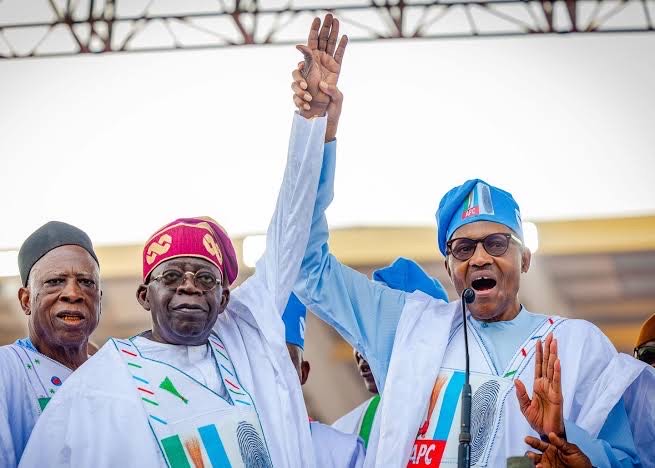
The election, which was deemed the worst in Nigeria’s history, resulted in the emergence of Tinubu, who promptly initiated reforms he deemed crucial to tackling the socio-economic crisis.
He eliminated fuel subsidies, floated the naira, and embarked on a borrowing spree, allocating a budget that prioritized recurrent expenditure on luxury vehicles, renovations of official residences, and other extravagant items over capital investments to generate employment opportunities.
The economy deteriorated, exposing Nigerians to reduced consumer spending as prices of goods continued to soar, exacerbating the already dire security situation and increasing the likelihood of social unrest.
Obi expressed his lack of surprise, affirming that Tinubu had made promises and had thus far kept them.
Speaking to Newsmen on Wednesday, which coincided with Nigeria’s celebration of 25 years of uninterrupted democracy, the former Governor of Anambra State remarked on Tinubu’s first year in office. “I’ve refrained from commenting on a year in office. The rationale being straightforward. I must say that President Tinubu has adhered to his campaign pledges.
“Throughout his campaign, he consistently asserted that he would continue from where Buhari left off, and he has performed admirably.
“I would dare say excellently. I would give him an excellent rating.”
Providing statistics to illustrate Tinubu’s poor performance, Obi noted, “The exchange rate was 460; it has now surged to 1,500. Fuel was 238, now it stands at around 700. Diesel was 844, currently at 1,415. A bag of rice was 30-35 thousand, now approximately 80 thousand.
“A bag of beans was similarly priced at 30-35 thousand, now around 90 thousand. Garri was 27-28 thousand, now 49-50 thousand.
“A yam tuber was about 2,700 to 3,000, now around 10,000. A basket of tomatoes was around 40,000, now over 150,000. Electricity, which was 66 kilowatts, is now over 200. The list goes on.
“Our debt, even bread, a staple that other countries subsidize, like Egypt, a small medium loaf for 450 naira is now 900 naira. The larger loaf was 900, now 1,500.
“Our debt, as I mentioned, was 87 trillion. By the end of last year, it had risen to 97 trillion, the highest it has been in such a short period. Now it’s over 100 trillion.
“Indeed, this year alone, the government, through the Central Bank of Nigeria, has injected and withdrawn over 16 trillion naira from the system. At an interest rate of almost 20%, this translates to approximately 3.2 trillion after 12 months. Adding to this, last year, within a nine-month period, we spent about 5.7 trillion servicing debt interest and payments. So, in total, we have performed poorly.”
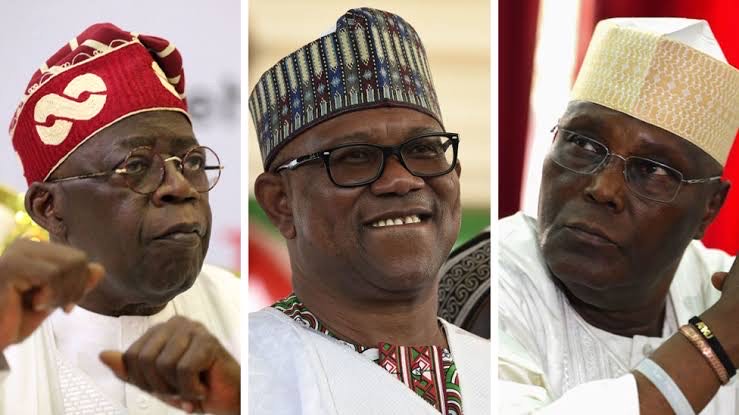
He added, “Let’s examine the overall economy. When he assumed office last year, we were still Africa’s largest economy with a GDP of $477 billion, followed by South Africa, Egypt, Algeria, and Morocco. Today, we have fallen to fourth place. South Africa is now in the lead with around $373 billion. Egypt comes second with $347 billion, followed by Algeria with 266 billion, and we are now a 252 billion GDP economy.
“The situation is even more dire in terms of per capita income. We are only 1/4th of the per capita income of the countries I mentioned.
“South Africa’s per capita income is over 6,000, Egypt’s is over 4,000. Algeria falls in the same range, and Morocco, which should be ranked fifth, has a per capita income of 4,210. Ours is just over 1,000. Our per capita income has significantly decreased from over 10,000 in 2014.
“Every aspect has deteriorated. Insecurity has worsened, corruption has increased, adherence to the rule of law has deteriorated, and favoritism is at an all-time high, “Obi, who earlier stated that Nigeria was not practicing democracy but rather facing State capture, emphasized.
Hoping for a Merger with the Labour Party and Like-Minded Individuals
Discussing the prospect of a merger to unseat the APC, Obi expressed optimism that the Labour Party would join forces with other individuals who share a similar vision of rescuing Nigeria from its current challenges.
Addressing the growing speculation about merging with the PDP, Obi remarked, “There is no agreement, but I desire and hope that there will be one. We need to seek out like-minded individuals who are committed to salvaging this country.”
He elaborated that the Labour Party is “in the process of organizing ourselves and exploring all available opportunities” towards a potential merger. Although they have not formally initiated this process, they are contemplating it.
“I call upon individuals who share our vision and recognize the challenges we face to come together and safeguard this country for the benefit of our future generations,” he stated.
Addressing the internal strife within the Labour Party, he clarified, “There is no significant division within the Labour Party, I can assure you of that. I am intervening. When fathers intervene in their families, it is not a public matter. I am a leader in the Labour Party, and discussions are ongoing. I guarantee that whatever issues or crises exist within the Labour Party do not amount to even 10% of what is occurring in other parties, and we will resolve them amicably.”
When asked if he would leave the party if the crisis persisted, Obi responded, “We do not have the kind of conflict that you are suggesting, people are exaggerating the situation.
“I am a loyal member of the Labour Party, and I remain committed. If, for any reason, as I mentioned earlier, we need to progress and there are other groups willing to collaborate with us, we will engage with them.”


